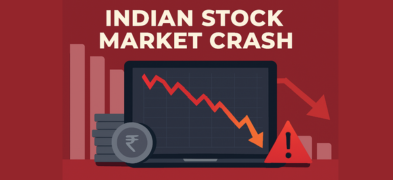Important Information
This website is managed by Ultima Markets’ international entities, and it’s important to emphasise that they are not subject to regulation by the FCA in the UK. Therefore, you must understand that you will not have the FCA’s protection when investing through this website – for example:
- You will not be guaranteed Negative Balance Protection
- You will not be protected by FCA’s leverage restrictions
- You will not have the right to settle disputes via the Financial Ombudsman Service (FOS)
- You will not be protected by Financial Services Compensation Scheme (FSCS)
- Any monies deposited will not be afforded the protection required under the FCA Client Assets Sourcebook. The level of protection for your funds will be determined by the regulations of the relevant local regulator.
Note: Ultima Markets is currently developing a dedicated website for UK clients and expects to onboard UK clients under FCA regulations in 2026.
If you would like to proceed and visit this website, you acknowledge and confirm the following:
- 1.The website is owned by Ultima Markets’ international entities and not by Ultima Markets UK Ltd, which is regulated by the FCA.
- 2.Ultima Markets Limited, or any of the Ultima Markets international entities, are neither based in the UK nor licensed by the FCA.
- 3.You are accessing the website at your own initiative and have not been solicited by Ultima Markets Limited in any way.
- 4.Investing through this website does not grant you the protections provided by the FCA.
- 5.Should you choose to invest through this website or with any of the international Ultima Markets entities, you will be subject to the rules and regulations of the relevant international regulatory authorities, not the FCA.
Ultima Markets wants to make it clear that we are duly licensed and authorised to offer the services and financial derivative products listed on our website. Individuals accessing this website and registering a trading account do so entirely of their own volition and without prior solicitation.
By confirming your decision to proceed with entering the website, you hereby affirm that this decision was solely initiated by you, and no solicitation has been made by any Ultima Markets entity.
I confirm my intention to proceed and enter this websiteOverview of the UAE Forex Market
UAE’s Economic Background and Forex Trading Growth
As an economic powerhouse in the Middle East, the UAE boasts a stable political environment and advanced financial infrastructure, laying the foundation for the booming forex trading industry. Dubai, as a global trade and tourism center, attracts significant international capital inflows, while Abu Dhabi supports steady economic growth with its oil wealth. This unique economic structure gives the UAE forex market both stability and high growth potential.
According to 2024 market data, the daily forex trading volume in the UAE has exceeded $50 billion, with retail forex trading increasing year by year. This trend is closely related to the growing investment awareness among the local population. From young professionals to wealthy entrepreneurs, more and more residents in the UAE are starting to view forex trading as a means of wealth accumulation.
Local Investor Preferences for Forex Market Assets
In the UAE forex market, investors mainly focus on currency pair trading, as these assets are favored for their high liquidity and market activity. Below are several types of forex assets most commonly chosen by local traders:
- Major currency pairs: Such as EUR/USD, USD/JPY, and GBP/USD, these are popular choices among UAE investors due to their low spreads, high liquidity, and moderate volatility. Particularly, currency pairs related to the US dollar, as the UAE dirham is pegged to the US dollar, have significant trading volumes.
- Minor currency pairs: Such as EUR/GBP, AUD/NZD, while having slightly lower liquidity than major pairs, offer opportunities for traders seeking higher volatility. These currency pairs also maintain stable demand in the UAE forex market.
- Emerging market currency pairs: Such as USD/TRY (USD/Turkish Lira), USD/ZAR (USD/South African Rand), attract some aggressive investors due to their high volatility and potential for high returns. The UAE’s international financial environment facilitates trading in such pairs.
These currency pairs each have unique characteristics in the forex market, meeting the different needs of UAE investors, from low-risk, steady trading to high-risk speculation. Especially in financial hubs like Dubai, currency pair trading has become the main way for retail investors to participate in global markets.
Regulatory Framework of the UAE Forex Market
The forex market in the UAE is subject to multi-layered regulation, primarily overseen by the following institutions:
- Dubai Financial Services Authority (DFSA): Responsible for regulating financial institutions within the Dubai International Financial Centre (DIFC), with strict standards to ensure the safety of investor funds.
- Securities and Commodities Authority (SCA): Regulates securities and commodities trading nationwide, including some forex brokers.
- Central Bank of the UAE: Oversees the financial market on a macro level, ensuring overall stability.
However, not all brokers operating in the UAE are subject to local regulation. Some international brokers rely on licenses from their home countries (such as the UK FCA, Australia ASIC) to enter the market. This means investors need to pay special attention to the regulatory background when choosing a broker.
How to Evaluate Forex Brokers in the UAE?
Key Indicators: Regulatory Compliance, Spreads and Commissions, Platform Features
When choosing a quality forex broker, the following factors should be considered:
- Regulatory Compliance
Regulation is the primary safeguard for the safety of funds. In the UAE, brokers regulated by DFSA and SCA typically have higher credibility, but internationally recognized regulatory bodies (such as ASIC, CySEC) are also trustworthy. Checking the broker’s license number and verifying its authenticity is a crucial task for beginners. - Spreads and Commissions
Transaction costs directly impact profitability. Brokers in the UAE typically offer floating spreads (e.g., EUR/USD as low as 0.1 pips), but some platforms may charge additional commissions. Investors should choose low-cost options based on their trading frequency. - Platform Features
A stable and user-friendly trading platform enhances operational efficiency. Currently, MetaTrader 4 (MT4) and MetaTrader 5 (MT5) are the most popular choices. They support automated trading, technical analysis, and multi-device login, making them ideal tools for both beginners and professional traders.
Common Trading Platforms: MetaTrader 4 and 5 Applications
- MT4: Known for its simple interface and rich indicators, ideal for forex trading beginners.
- MT5: Builds on MT4 with additional features, such as market depth data and more time frames, suitable for advanced traders.
Most UAE forex brokers support these two platforms and provide free demo accounts to help investors familiarize themselves with the operations.
The Impact of Spreads on Trading
In the UAE forex market, spreads are a core factor that investors cannot overlook when choosing a broker. Simply put, the spread is the difference between the bid price and the ask price, usually measured in “pips,” and represents the direct cost for traders to enter the market. For investors in the UAE, the size of the spread not only affects the profitability of short-term trades but also closely relates to trading frequency and strategy.
Forex market spreads are typically divided into two types: fixed spreads and floating spreads. Fixed spreads remain stable during market fluctuations and are suitable for beginners or low-frequency traders, while floating spreads change based on market supply and demand. Floating spreads can be as low as 0.1 pips during low volatility but may widen during significant economic events (such as non-farm payroll data releases). Most brokers in the UAE offer floating spreads, especially for major currency pairs like EUR/USD, as they tend to have high liquidity and competitive spreads.
For local investors, the importance of spreads varies depending on trading style. Short-term traders (Scalpers) prefer ultra-low spreads with ECN accounts to minimize costs, while long-term traders focus on spread stability to avoid impacts from unexpected widening. In an internationalized financial market like the UAE, many brokers attract customers by optimizing spreads. For example, international brokers like Ultima Markets offer floating spreads as low as 0.1 pips with commission-free accounts, making it an ideal choice for cost-effective traders.
When selecting a broker, investors should focus on average spread data and use demo accounts to test actual trading costs. After all, in high-frequency trading, even a 0.5-pip difference can accumulate over time and determine the success or failure of a trade.
Features and Comparison of Leading Brokers in the UAE
The UAE market is home to many well-known brokers, each with representative features:
- Local Brokers: Such as ADSS, regulated by DFSA, focusing on the Middle Eastern market and offering Arabic language support.
- International Brokers: Such as Ultima Markets and Saxo Bank, attracting high-end clients with their global brand influence and diverse asset offerings.
- Emerging Platforms: Some new brokers promote low entry barriers and high leverage but require cautious verification of their regulatory background.
In this context, international brokers like Ultima Markets, although headquartered in Australia and regulated by ASIC, meet the needs of UAE investors with their low spreads and high transparency trading environment. It offers the MetaTrader 4 platform and supports trading in various currency pairs, making it a good option for traders seeking diversification and cost-effectiveness. Of course, there are many other quality platforms in the market, and the choice ultimately depends on your trading style.
Practical Trading Strategies for UAE Investors
Basic Forex Trading Skills
For beginners, mastering the following skills is key to getting started:
- Technical Analysis: Use tools such as candlestick charts, moving averages (MA), and the Relative Strength Index (RSI) to assess market trends.
- Fundamental Analysis: Focus on events that impact currency fluctuations, such as US non-farm payroll data and Middle Eastern geopolitical developments.
- Start with Small Amounts: Begin with low leverage (e.g., 1:10) to avoid excessive risk.
Risk Management: How to Handle Market Volatility
The UAE market may experience higher volatility due to its links to the energy economy. Here are some practical suggestions:
- Set Stop-Loss and Take-Profit Levels: Ensure the risk for each trade is manageable, such as limiting losses to 1%-2% of your capital.
- Diversify Investments: Avoid concentrating funds in a single currency pair and consider trading different types of currency pairs.
- Avoid Emotional Trading: Develop a plan and stick to it, avoiding chasing market moves in response to sudden changes.
Investment Suggestions Based on Local Economic Trends
- Monitor Oil Price Fluctuations: The UAE economy is highly tied to oil, and when trading USD/CAD, the dynamics of OPEC should be taken into account.
- Track the US Dollar Trend: As the UAE dirham is pegged to the US dollar, changes in the US Dollar Index are worth close attention.
- Take Advantage of Euro Opportunities: EUR/USD, with its low spreads and high liquidity, is a core choice for UAE traders.












